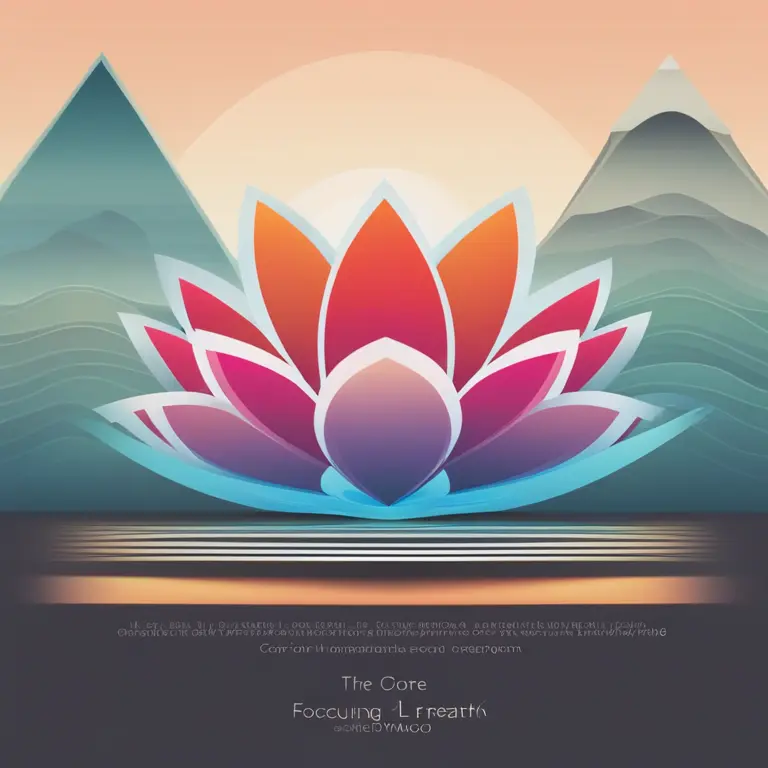
Guiding Your Personal Meditation Journey
Discover practical steps to lead a grounding mindfulness meditation session, enhancing your inner peace and clarity.
article by Hina Kurosawa
Beginning Your Meditation Practice
To embark on a mindfulness meditation journey, one must approach the practice with patience and self-compassion. Mindfulness is not about achieving perfection but about cultivating awareness and presence in the moment. Find a quiet space where you will be undisturbed. Sit in a comfortable position, with your back straight but not rigid, and your hands resting gently on your lap or knees. Close your eyes or lower your gaze to minimize external distractions. Start by taking several deep, deliberate breaths, filling your lungs and exhaling slowly to anchor yourself in the present.

Focusing on the Breath
The breath is a powerful anchor, its rhythmic nature a dependable constant in our lives. Turn your attention to your breathing, observing its natural flow without trying to alter it. Notice the sensation of air moving through your nostrils, the rise and fall of your chest, or the expansion and contraction of your abdomen. When your mind wanders—as it inevitably will—gently guide it back to your breath. This process of returning to your breath is where the practice strengthens your mindfulness muscle.

Body Scan for Awareness
After focusing on your breath, transition to a body scan. Begin at the top of your head and gradually move your awareness down to your toes. Acknowledge any tension or sensations in each body part. This practice helps integrate the physical body with your meditative state, establishing a thorough sense of presence. Remember that there is no right or wrong feeling during this exercise. The aim is simply to observe and be aware of what is.

Embracing Silence and Stillness
Maintain your focus amidst silence and stillness, valuable elements of a mindfulness meditation session. In our modern world, where constant stimulation is the norm, silence can sometimes feel unsettling. However, by allowing yourself to sit with the quiet, you create space for your mind to settle. In this space, you may encounter insights or clarity about aspects of life that were previously obscured by mental noise.

Welcoming Thoughts without Judgment
As thoughts arise, treat them with a nonjudgmental attitude. Mindfulness meditation is not about eliminating thoughts but learning to observe them without being consumed by their content. As if watching clouds pass in the sky, acknowledge your thoughts and let them go, refocusing on your chosen point of attention, your breath, or a mantra if you've selected one.
Concluding With Gratitude
To conclude your meditation, gently widen your awareness beyond your breath. Take a few moments to appreciate the opportunity to connect with your inner self. Perhaps set an intention for the rest of your day, rooting it in the calm and clarity cultivated during your session. Finish with a few deep, conscious breaths before opening your eyes and reacquainting yourself with your surroundings.
Making Mindfulness a Habit
Incorporate mindfulness meditation into your routine for sustained benefits. The practice fosters a deeper understanding of oneself and improves overall mental clarity. Over time, you'll notice an enhanced ability to handle stress and a shift in how you react to life's challenges. Stay adaptable, and remember that even a few minutes of meditation daily can have a meaningful impact on your wellbeing.
Published: 1/18/2024
Modified: 1/18/2024
More predictions
Come back here soon to learn more about yourself and your future


Mastering The Path Of Mindfulness Meditation
Discover the serene path of mindfulness meditation with this comprehensive guide designed to help you find inner peace and clarity.


The Connection Between Meditation & Mindfulness
Discover the relationship between meditation and mindfulness, and how these practices contribute to mental clarity and inner peace.


The Art of Mindfulness Meditation: A Step-by-Step Guide
Discover the serene journey of mindfulness meditation—learn the art of presence and cultivate a more mindful, peaceful existence.